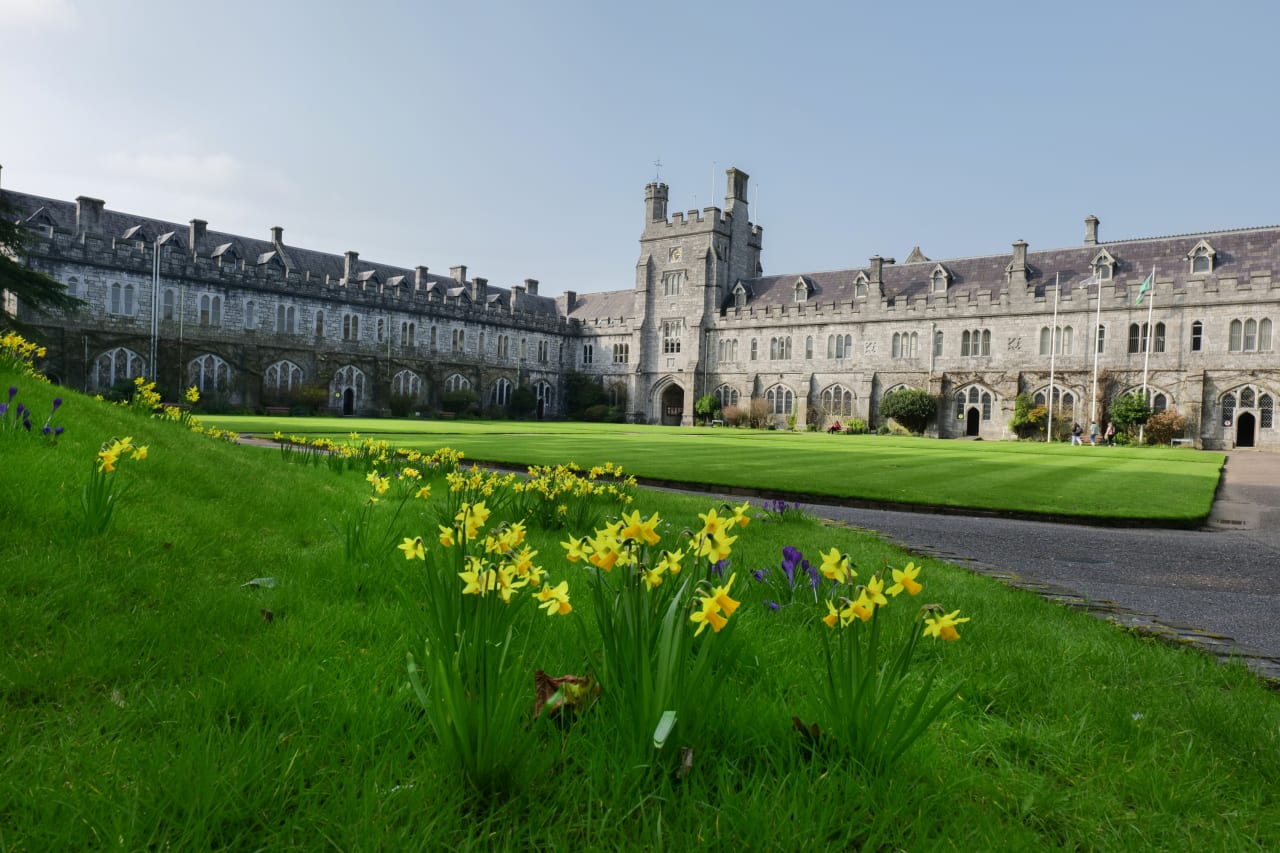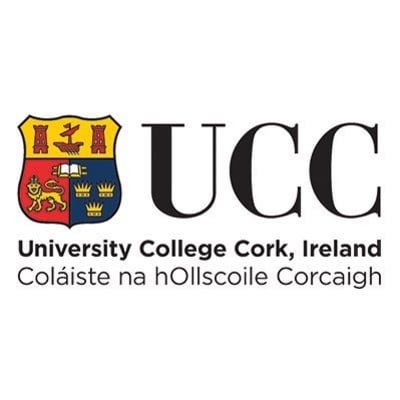
MA in Psychology - Applied Psychology (Positive and Coaching Psychology)
University College Cork

Key Information
Campus location
Cork, Ireland
Languages
English
Study format
On-Campus
Duration
1 - 2 year
Pace
Full time, Part time
Tuition fees
EUR 8,080 / per year *
Application deadline
Request info
Earliest start date
Request info
* EU students full-time; EUR 4,100 year 1 part-time; EUR 4,100 year 2 part-time | non-EU students: EUR 18,400
Introduction
This innovative MA Applied Psychology (Positive & Coaching Psychology), based at University College Cork (UCC) in Ireland, brings together the fields of Positive Psychology and Coaching Psychology.
Coaching Psychologists specialise in behaviour change and use systematic methodologies drawn from the psychological evidence base to bring about positive change. This form of coaching is valued by people who want professional support from their coaches in order to maximise their performance and potential. In this programme we provide you with the tools and skills to provide such support and you will gain theoretical and practical knowledge of Positive Psychology and Coaching competencies.
Positive Psychology is the science of well-being, strengths, and the achievement of our potential, and all that is good in us. As a person’s level of well-being increases, their goal attainment also increases. Consequently, the synergies between Positive Psychology and Coaching Psychology make for a very powerful approach in helping people realise their potential.
This is the first course of its kind to be offered at MA level in the Republic of Ireland. The programme equips students with advanced training in coaching skills that will prepare them for a career as a professional coach. Skills in research methodology are a prerequisite for all psychology professions, and they constitute a key set of skills that set psychologists apart in the wider workplace.
Gallery
Admissions
Curriculum
In Part I students take 60 credits consisting of core and elective modules.
In Part II students complete a Research Dissertation (30 Credits). Although students must complete Part I before progressing to Part II, work on the research dissertation commences at the start of your course under the supervision of a member of staff.
Part-time: The part-time option is taught during weekday working hours over 2 years. Modules are broadly similar for the part-time option but are taken over two years with students completing 20 credits in Year 2 for Part I.
Part I
Students complete Core Modules to the value of 50 credits, and select 10 credits from the Elective Modules.
Core Modules (50 credits)
- AP6016 Research Methods and Data Analysis (10 credits)
- AP6181 Practice of Evidence-Based Coaching (10 credits)
- AP6182 Positive Psychology and Human Flourishing (10 credits)
- AP6183 Positive Psychology Coaching Practice (10 credits)
- AP6184 Cognitive enhancement and motivational interviewing as strategies for change (10 credits)
Elective Modules (10 credits)
- AP6129 Health Psychology (5 credits)
- AP6159 Positive Organisational Psychology (5 credits)
- AP6160 Private Practice (5 credits)
- AP6164 Positive Psychology in Group Settings (5 credits)
- AP6169 Learning, Well-Being and Participation at Work (10 credits)
Part II
- AP6171 Research Dissertation in Work, Organisational and Coaching Psychology (30 credits)
Postgraduate Diploma in Applied Psychology (Positive and Coaching Psychology)
Students who successfully complete and pass taught modules to the value of 60 credits in Part I and opt not to complete Part II may exit the programme and be conferred with a Postgraduate Diploma in Applied Psychology (Positive and Coaching Psychology). A student who subsequently applies to undertake the Master's programme must do so within 5 years of successful completion of the Postgraduate Diploma in Applied Psychology (Positive and Coaching Psychology) subject to the programme being on offer.
Postgraduate Certificate in Applied Psychology (Positive and Coaching Psychology)
Students who successfully complete and pass taught modules to the value of at least 30 credits in Part I may exit the programme and be conferred with a Postgraduate Certificate in Applied Psychology (Positive and Coaching Psychology). A student who subsequently applies to complete the Master's programme must do so within 5 years of successful completion of the Postgraduate Certificate in Applied Psychology (Positive and Coaching Psychology) subject to the programme being on offer.
- Please see the University Calendar (Applied Psychology-Positive and Coaching Psychology) for further details on programme content.
This course runs over one year full-time or two years part-time and requires a commitment of 40-50 hours of total student effort throughout all the weeks of the semester.
Assessment
Modules are assessed through a variety of methods including continuous assessment, coaching practice, essays, portfolios, and some end-of-year examinations (for some elective modules). Students are also required to complete a Research Dissertation which comprises a report to professional standards of 15,000 words (not including technical appendices, if any). A fully documented presentation to an audience of peers and experts lasting approximately 30 minutes will also take place. For a full description of the assessment for each module please refer to the Book of Modules.
This course is taught by academics from the School of Applied Psychology. See our staff page for Research Profiles of our current academic staff.
Connected Curriculum
We encourage innovative teaching and learning practices at UCC. This learning approach reflects our commitment to the Connected Curriculum where we emphasise the connection between students, learning, research and leadership through our vision for a Connected University. Our staff are at the forefront of this integrative approach to learning and will support you in making meaningful connections within and between topics such as Health and Psychology.
Program Tuition Fee
Career Opportunities
Coaching Psychology is a developing profession within the wider field of Psychology; In the Psychological Society of Ireland (PSI), it is considered a Special Interest Group. This is a step on the way to becoming a full Division, where practitioners will be able to term themselves Chartered Coaching Psychologists. So this programme is truly for the trailblazers – some of you might shape this profession in years to come.
Of course, you do not need to be a psychologist to be a great coach. If you decide not to follow the PSI route you would most likely want to join one of the coaching professional bodies and start following their accreditation routes such as the Association for Coaching and European Mentoring and Coaching Council.
Master's training is an integral part of any human services profession. Ultimately we envisage our graduates will have three career routes opened to them by completing this course.
- Directly into the private sector, either as a consultant practitioner or through the development of private practice.
- Further training in a psychology profession such as Clinical, Educational or Health.
- A Research/Academic career in Psychology or related area perhaps by moving into a PhD programme such as the Doctor of Clinical Psychology programme.